Venezuela’s tren de aragua gang sparks chaos inside texas ice facility. This prompted hostage threats and deportation battles
A violent uprising at a Texas ICE center involving Tren de Aragua detainees has raised national security concerns. It also brings up serious questions about legal immigration.
A dangerous standoff involving nearly two dozen alleged members of Venezuela’s notorious Tren de Aragua gang erupted at a Texas ICE detention center.
The detainees barricaded themselves inside the unit, threatened to take ICE officers hostage, and demanded deportation.
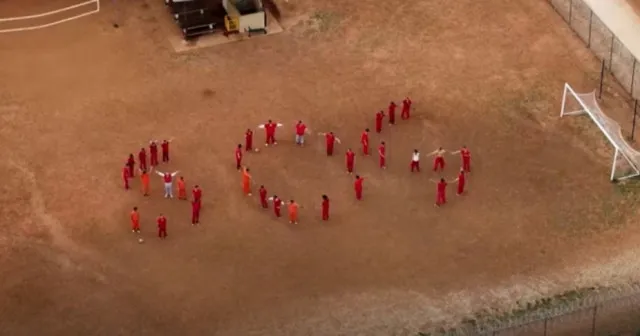
The incident has intensified debate over how U.S. immigration handles violent foreign gang members.
Tren de Aragua members staged a violent standoff with ICE
On April 26, ICE officials reported that a group of Tren de Aragua gang members staged a multi-hour uprising inside a Texas detention center.
DHS confirmed that gang members barricaded themselves inside a unit. They threatened to take ICE officers hostage and cause serious harm.
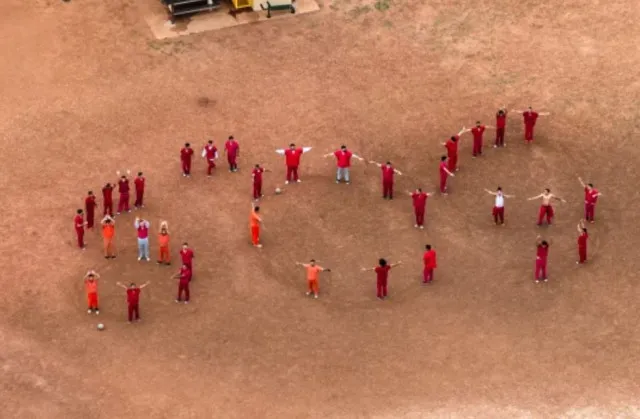
Additionally, they used cots to block doors, flooded the unit by clogging toilets, and disabled surveillance cameras to conceal their actions.
DHS said the detainees refused to comply with ICE agents.
They also openly threatened to injure staff or take them hostage.
Officials described the incident as a serious escalation from a group already under scrutiny for violent criminal ties.
The situation was eventually contained, but concerns about further unrest remain.
Detained migrants had spelled out ‘SOS’ in the prison yard
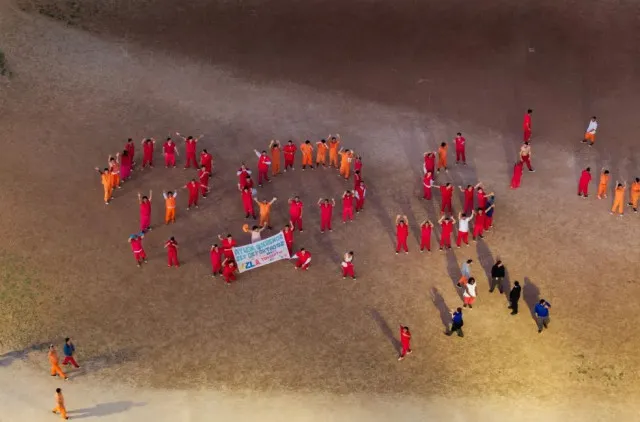
Previously, on social media, many viewers stunned after a viral video showed detained migrants had spelled out ‘SOS’ in the prison yard
The chaos followed recent footage showing detainees flashing a banner that read “Help, we want to be deported. We are not terrorists. SOS.”
The message was directed at a drone flying overhead the facility, aiming to attract public and media attention.
Earlier this month, another drone captured detainees forming the letters “SOS” on the prison yard grass.
DHS officials say these tactics are part of a coordinated attempt to manipulate public sympathy.
They believe the goal is to avoid formal hearings or legal proceedings.
Additionally, The DHS noted increased desperation among detainees.
Some claimed that they fear for their lives and wish to return to Venezuela.
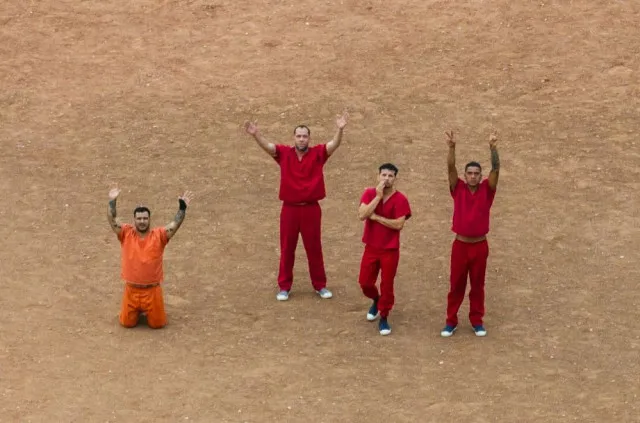
DHS urges Supreme Court to allow deportations under Alien Enemies Act
In response to the uprising, the Department of Homeland Security urged the Supreme Court to revive the Alien Enemies Act.
This 18th-century law allows for expedited deportation of foreign nationals deemed threats to U.S. security.
The Trump administration previously used it to deport alleged gang members to El Salvador without court hearings.
However, the Supreme Court issued a temporary block, stalling the removal of detainees back to high-security prisons like CECOT.
“Keeping these foreign terrorists in ICE facilities poses a serious threat to ICE officers, staff, and other detainees,” said Assistant Secretary Tricia McLaughlin in a statement.
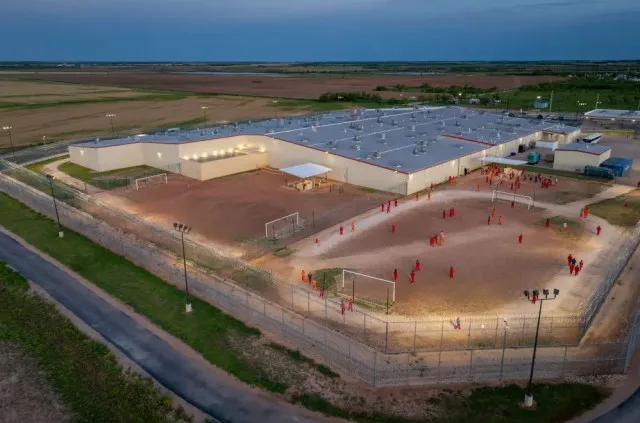
“The media repeated these TdA gang members’ false sob stories, but the truth is these are members of a foreign terrorist organization that rape, maim, and murder for sport,” she added.
Supreme Court blocks transfer to El Salvador’s CECOT prison
Among the detainees is 19-year-old Jeferson Daniel Escalona Hernandez, previously held at a migrant center in Guantanamo Bay.
He was arrested in Texas for evading police and later transferred to the ICE facility in the Lone Star State.
While DHS says he “self-admitted” to being part of *Tren de Aragua*, Escalona Hernandez now denies any gang involvement.
“I want to go to Venezuela,” he told Reuters, claiming authorities misinterpreted hand signs in his phone photos.
Another detainee, Diover Millan, 24, was labeled a gang member after being released at the border and later rearrested by ICE.